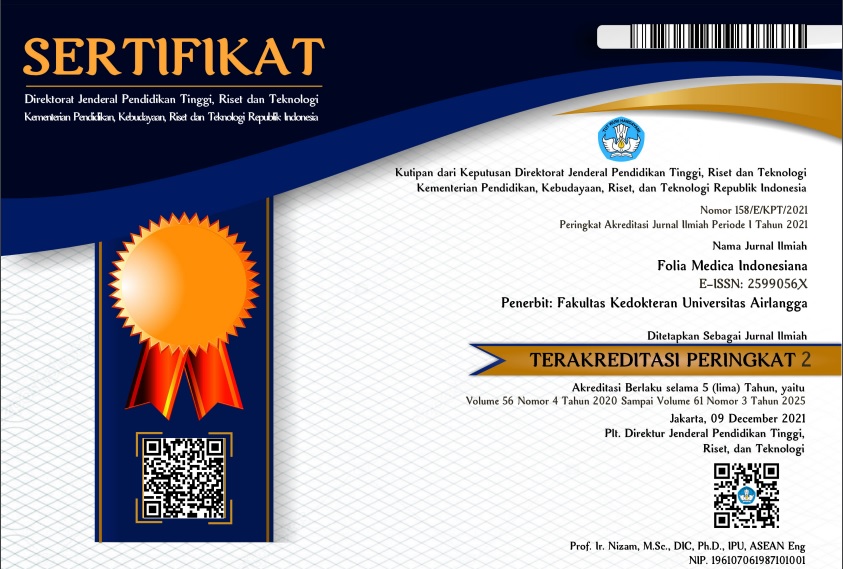Abstract
Cervical cancer is the most common cause of death among gynaecological neoplasms. Management of advanced cervical cancer currently has not been able to improve the prognosis. Standard intervention therapy, chemotherapy and radiotherapy, as well as the emerging pain could lead to psychological stress till depression, thus reduce patients' quality of life. CBT for psychological stress and depression is expected to improve the fruitfulness of standard therapy. Serotonin is a neurotransmitter which plays a role in the patophysiology of depression. The aim of this study is to analyze the effect of cognitive behavioral therapy on serotonin level, depression score and quality of life in advanced cervical cancer patient with experimental quasi pre and post test design methods. The samples are 15 subjects in both intervention and control groups. Intervention group was given CBT and standard therapy, while control group was given standard therapy only. Study was held in Department of Obstetric and Gynecologic Dr. Moewardi Hospital Surakarta and Prodia Laboratory, in January to March 2015. Independent variable was advanced cervical cancer patients underwent CBT intervention and dependent variables were serotonin level, depression score and quality of life score. The result, serotonin level and quality of life scores were higher after intervention compared with control, (219.43±33,42 vs 89.57±23.23) and (85.13±14.62 vs 41.86±7.24), respectively. Depression score was lower after intervention than without CBT intervention (11.20±4.94 vs 17.00±4.86) and statistically significant (p < 0.05). So, there were effects of cognitive behavioural therapy on serotonin level, depression score and quality of life score in cervical cancer patients and were statistically significant.
Keywords
advanced cervical cancer, serotonin, depression score, quality of life, CBT
First Page
231
Last Page
234
DOI
10.20473/fmi.v52i3.5457
Publication Date
8-14-2017
Recommended Citation
Soetrisno, Soetrisno; Sulistyowati, Sri; Respati, Supriyadi Hari; and Nasrudin, Muhamad.
2017
Effect of cognitive behavioral therapy for serotonin level, depression score and quality of life in cervical cancer patients.
Folia Medica Indonesiana. 52,
3 (Nov. 2024 ), 231-234.
Available at: https://doi.org/10.20473/fmi.v52i3.5457






